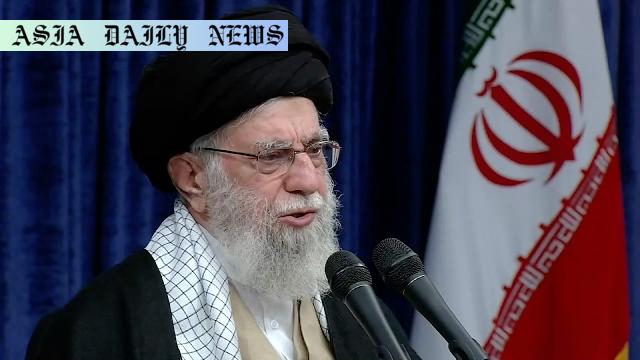Iran operation: Israeli military official confirms completion of critical attacks on Iran’s nuclear and military infrastructure.
Israel’s military operation in Iran is projected to conclude in 1–2 weeks.
Focus remains on damaging Iran’s Fordow nuclear facility.
The US considers intervening with advanced bunker-busters.
High-level tensions escalate between Israel and Iran.

Escalating Tensions: Israel vs Iran
The ongoing operations led by Israel against Iranian facilities have marked a critical juncture in the longstanding conflict between the two nations. According to reports, Israel’s military officials have expressed their agenda to target Iran’s critical nuclear and military facilities, particularly the underground nuclear enrichment site at Fordow. With precision airstrikes already conducted on key locations in Tehran, the operation is expected to conclude within a week or two. However, the larger question lies in the scale of damage that Israel hopes to achieve within this tight timeline.
The Israeli government appears adamant in achieving specific milestones. As highlighted by National Security Adviser Tzachi Hanegbi, the operation will not be considered successful unless substantial damage is inflicted on the Fordow facility. Located approximately 80 meters underground, the site is believed to be protected against most conventional attacks. To strike such a fortified location effectively, advanced weaponry like the United States’ specialized bunker busters would be essential, fueling speculations of American involvement in the operation.
Global Implications and the Role of the United States
Amid this tense backdrop, the eyes of the world are on the United States. The involvement of the US could significantly alter the trajectory of this conflict. President Donald Trump has intensified the discourse by urging Iran to surrender unconditionally. The critical decision for the US lies in whether to engage directly—potentially by deploying bunker-busting bombs from B-2 bombers to reinforce Israeli strikes—or to remain on the sidelines while offering diplomatic support.
The New York Times recently revealed that the US is weighing its options carefully, considering the significant consequences of taking sides in an open military confrontation. The prospect of disrupting Iran’s nuclear progress has reassured Israel but raises concerns globally about the long-term repercussions of such escalating measures. Iran, on the other hand, has vowed public resistance according to messages published by the office of Ayatollah Ali Khamenei. The phrase ‘the battle begins’ prominently featured on social media highlights Iran’s unwillingness to back down.
The Risks of Prolonging the Conflict
While both countries engage in a public showcase of strength, the prolonged conflict risks destabilizing the broader Middle Eastern region. Civilian areas in both Israel and Iran are likely to bear the consequences of retaliatory strikes. Reports from Tel Aviv already indicate interceptions of missiles. The conflict also threatens to disrupt global economic stability, especially regarding oil prices, as tensions impact key supply chains originating in the region.
Concluding the operation quickly is crucial for both Israel and the international community. However, Israel’s stated goal of neutralizing Fordow suggests that the conflict could stretch beyond its announced timeline if the targets are not successfully destroyed. Similarly, any direct intervention by the United States risks escalating tensions to a global level, with unpredictable consequences affecting security worldwide. Navigating this precarious situation calls for an effective blending of strategic military operations and diplomatic efforts.
Commentary
A Balancing Act: Israeli Ambitions vs Global Stability
The rapidly unfolding events between Israel and Iran serve as a stark reminder of the fragility of international peace in volatile regions. While Israel’s concerns over the potential nuclear capabilities of Iran are valid given the history of heightened tensions, engaging in military operations of this magnitude is not without consequences. Striking nuclear sites, particularly those as fortified as Fordow, carries risks far beyond immediate retaliation from Iran. It raises ethical and strategic questions about the long-term cost of military escalation versus the potential benefits of delaying nuclear advancements.
The Role of the United States
The implications of U.S. involvement cannot be ignored in this scenario. The Trump administration’s inclination to support Israel strategically may serve as a critical tipping point in the ongoing conflict. By deploying advanced weaponry capable of penetrating fortified sites, the U.S. risks not only escalating warfare but also damaging its diplomatic standing among other Middle Eastern nations. The balance between being a strategic ally, as opposed to an active participant, remains the crux of President Trump’s decision-making. He must weigh the potential for exacerbating a regional crisis against achieving shared goals with Israel regarding Iran.
Looking Forward
The endgame of this operation, whether it concludes in one to two weeks as projected or drags into a more extended conflict, holds significant ramifications for the entire region. Iran’s public refusal to surrender and its messages of resistance signal a prolonged standoff with Israel. This highlights the importance of international mediation at this critical juncture. Without careful interventions, both military and diplomatic, the situation risks spiraling out of control, leading to not only human suffering but also broader geopolitical volatility.


